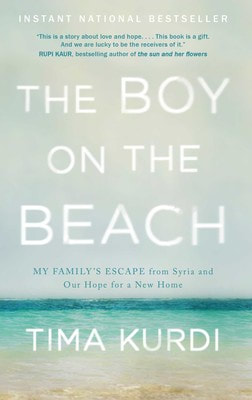|
By: Andrew Lee, Meds 2022 There is something bone-chilling about seeing the death of a child. We think about all of their potential, their missed opportunity for school, first school dance, first partner, first graduation, first child of their own. We are left with a void and too many what ifs. This was the story of Alan Kurdi, who forced the world to look deeply into the tragic death of a young boy.
Fatima Kurdi left her modest home on the hilltops of Damascus, Syria in the summer of 1992. Little did she know, she was not merely fulfilling her dreams of exploring the world, but she was narrowly escaping a life of violence, torture, and political unrest. Syria has been the site of conflict since 2011, with many innocent people slain before their families. Life in Damascus could only be described by one word, family – a definition of family that expanded past blood relation. Warm and bright smiles, the beat of a drum every morning of Ramadan, and the smell of jasmine in the crisp summer air – these memories all make up Kurdi’s childhood. Kurdi traverses the trauma and hurt caused by the displacement of her family poignantly. She hints to her survivor’s guilt and the injustice her family faces. As her family becomes fractured, seeking safety in neighbouring countries, the book focuses on Alan Kurdi, the youngest son of her younger brother, Abdullah. She recounts Abdullah’s younger years – he was a charismatic child who elicited belly laughs from the entire room. A bit of a silly child, he would always find himself getting injured through his shenanigans. Their mother would say, “All these accidents, but he always survives. This boy is protected by mala’ekah,’ which means ‘protected by the angels’”. Abdullah’s characteristics and charms? were passed down to his little boy Alan. Alan, however, did not receive the same protection as his father did. As the Syrian civil war garnered international attention, some European countries began opening their doors. Thousands of people left Syria for Turkey. Unfortunately, the influx of refugees was not well-received and the capacity to hold them did not exist. It was difficult for refugees to find work and moreover, refugee camps were rampant with starvation and illness. These camps were not a feasible long-term solution. Countries such as Canada did not help. Fatima tried tirelessly to sponsor her family to Canada through refugee status, however, the government required a Turkish residence permit, which was not provided to citizens of non-EU countries. Their applications were at a standstill. Thus, refugees would tackle the fierce waves of the Kos river in hopes of seeking asylum in Greece. People would pay hundreds to thousands of Canadian dollars to smugglers offering flimsy plastic rafts in the face of tumultuous waves. As a result, many would drown on the journey to freedom and safety. Kurdi reminds us of our responsibility to humanity. She came to Canada as a hairdresser who knew very little English in hopes of starting a new life. She missed her home in Syria dearly and would visit her family often. As the conditions in Syria worsened, she longed to help her family, and she sent little of what she made to support their journeys out of the conflict zone. “The Boy on the Beach” reminds us that we yearn for the same things in life: family, love, security, and safety. Reading this book only reminded me how much hurt there is in this world and the frustrating bureaucracy that intentionally prevents refugees from seeking safety. Through her emotional and ingenious storytelling, Fatima Kurdi reminds us that we should not need to see a little boy dead on the beach to be angry, to be vocal, and to advocate for a better life for all.
1 Comment
|


 RSS Feed
RSS Feed
